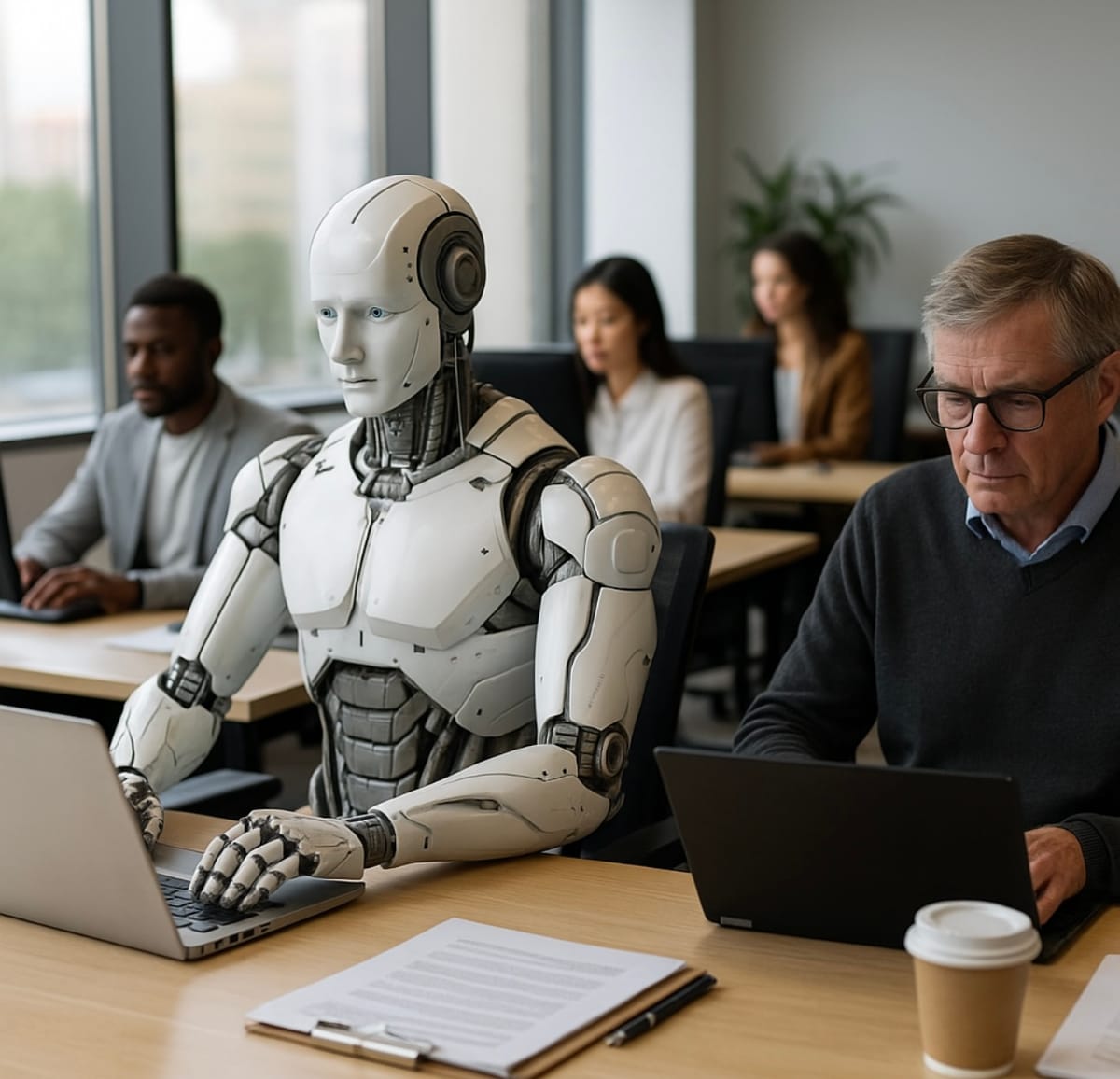Bill Gates Predicts: AI Set to Replace Many Human Jobs
Bill Gates predicts AI will replace many human jobs, including doctors and teachers, within the next 10 years.

Bill Gates: AI Will Transform the World of Work Within a Decade
A bold statement has come from Bill Gates, Microsoft’s founder and one of the most influential figures in global technology. In his recent interview on The Tonight Show Starring Jimmy Fallon in February 2025, Gates delivered a prediction that has sparked global discussion: artificial intelligence (AI) will replace many human jobs, including prestigious professions like doctors and teachers, within the next ten years.
A Major Transformation in the Workforce
Bill Gates describes AI as ushering in a new era, which he calls the “free intelligence” era. According to him, many human jobs that seem irreplaceable today—such as providing medical advice and quality education—will soon become common services, accessible to all. Gates emphasized that AI will enable anyone, anywhere, to receive top-tier medical and educational services without expensive fees or geographic limits.
Evolving and Enduring Professions
While AI will automate many fields, Gates notes there are still activities that require a human touch. “People will still enjoy activities like sports. I doubt anyone wants to watch a baseball game played entirely by robots,” Gates said, highlighting the importance of entertainment and emotional interaction in human life.
Gates believes jobs that rely on human labor, such as manufacturing, logistics, and agriculture, will also gradually be replaced by technology. However, there will always be space for creative work, the arts, and roles that require empathy or cultural values—areas where humans excel over machines.
Impact on Working Hours and Lifestyle
One of Gates’s most interesting predictions concerns the shift in work patterns. He envisions a future where people no longer need to work five days a week. As AI takes over routine tasks, humans could choose to work only two or three days per week, or even retire earlier. This possibility raises major questions about the future of economic systems, welfare, and job distribution.
Challenges and Risks Behind the Optimism
Despite the potential, Gates also warns of the challenges ahead. AI, while increasingly sophisticated, is still prone to errors and may spread misinformation. Adapting to this transformation will require society to be prepared in terms of regulations, ethics, and education. Gates stresses the need to update educational systems so the next generation can be not just users, but also creators of new technology.
Other Experts’ Perspectives and Global Reactions
Gates’s views have drawn both criticism and support from other leaders. Mustafa Suleyman, CEO of Microsoft AI, wrote in his book The Coming Wave that AI is indeed set to change nearly all professions. He believes this wave of automation will bring major instability to the workforce, but also new opportunities for humans to grow into more strategic and creative roles.
Towards the Era of Free Intelligence
The “free intelligence” era, as described by Gates, will make high-quality education and medical care much more affordable. However, this fundamental change also requires major policy updates, new skills, and a mental shift to face an automated world. Governments, corporations, and communities must adapt and develop abilities that machines cannot easily replace—such as critical thinking, innovation, and empathy.
Bill Gates’s predictions highlight a profound change on the horizon. AI is not just a supporting tool, but will become a main driver of civilization’s transformation. While AI brings many benefits, this new era demands collective readiness to ensure technology truly serves humanity, not threatening the future of work and social balance.





Comments ()